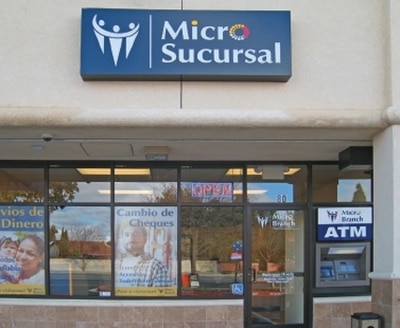PERSPECTIVES
CT Prospera: An Alternative to Alternative Financial Products
March 11, 2013Mona Masri, Senior Vice President, Citi Community Development

 The Federal Reserve Bank of San Francisco recently released a new case study about an innovative check cashing/credit union hybrid service model called CT Prospera. This pilot initiative, developed and built with significant funding from Citi Community Development, is acting as a laboratory for better understanding the needs and behaviors of unbanked and underbanked consumers and advancing financial inclusion.
The Federal Reserve Bank of San Francisco recently released a new case study about an innovative check cashing/credit union hybrid service model called CT Prospera. This pilot initiative, developed and built with significant funding from Citi Community Development, is acting as a laboratory for better understanding the needs and behaviors of unbanked and underbanked consumers and advancing financial inclusion.
The first effort of its kind, CT Prospera combines the look and feel of a traditional check cashing operation with responsible transaction services and a newly defined method of financial coaching. Together, these approaches incrementally move clients towards savings, asset building, and responsible credit with each customer interaction.
Sobering statistics make the need for this type of solution clear. According to the Federal Deposit Insurance Corporation (FDIC), approximately 68 million people, or 28 percent of all U.S. households, are either unbanked or underbanked and are unable or unwilling to access products of mainstream financial institutions. As a result, alternative providers - such as check cashers, pawn shops, consumer finance companies and payday lenders - have emerged to fill the void.
According to research from the Center for Financial Services Innovation (CFSI), over 15 million Americans annually rely on small-dollar credit products - such as payday, pawn, and auto title loans - to address their need for short-term funds. These products can come with high interest rates and onerous terms. Part of the reason many consumers rely on these products stems from having subprime or limited credit histories. A separate CFSI study, sponsored by Citi Community Development, called Building Consumer Credit: A Winning Strategy for Financial Institutions and Consumers further addressed this complex issue, suggesting a number of ways mainstream financial institutions like banks and credit unions help build the credit profiles of low- and moderate0income consumers.
In addition, according to a report from the Center for Responsible Lending, many of the 12 million people who take advantage of payday loans every year are trapped in a cycle of 400 percent interest, transferring $5 billion every year from working families to higher-cost lenders. In addition to the risks of payday loans, people who cash their checks at alternative check cashing outlets are also missing critical financial empowerment opportunities: a place to save money, the chance to develop or repair credit histories, personal security from theft, and access to responsible credit. These basic financial services are the gateway to financial stability and capital access, which are critical steps toward upward economic mobility.
While CT Prospera is still in its pilot phase and new findings continue to emerge, the new report from the Federal Reserve Bank of San Francisco provides a valuable look at lessons learned thus far and is an informational resource for organizations that are interested in learning from this model.